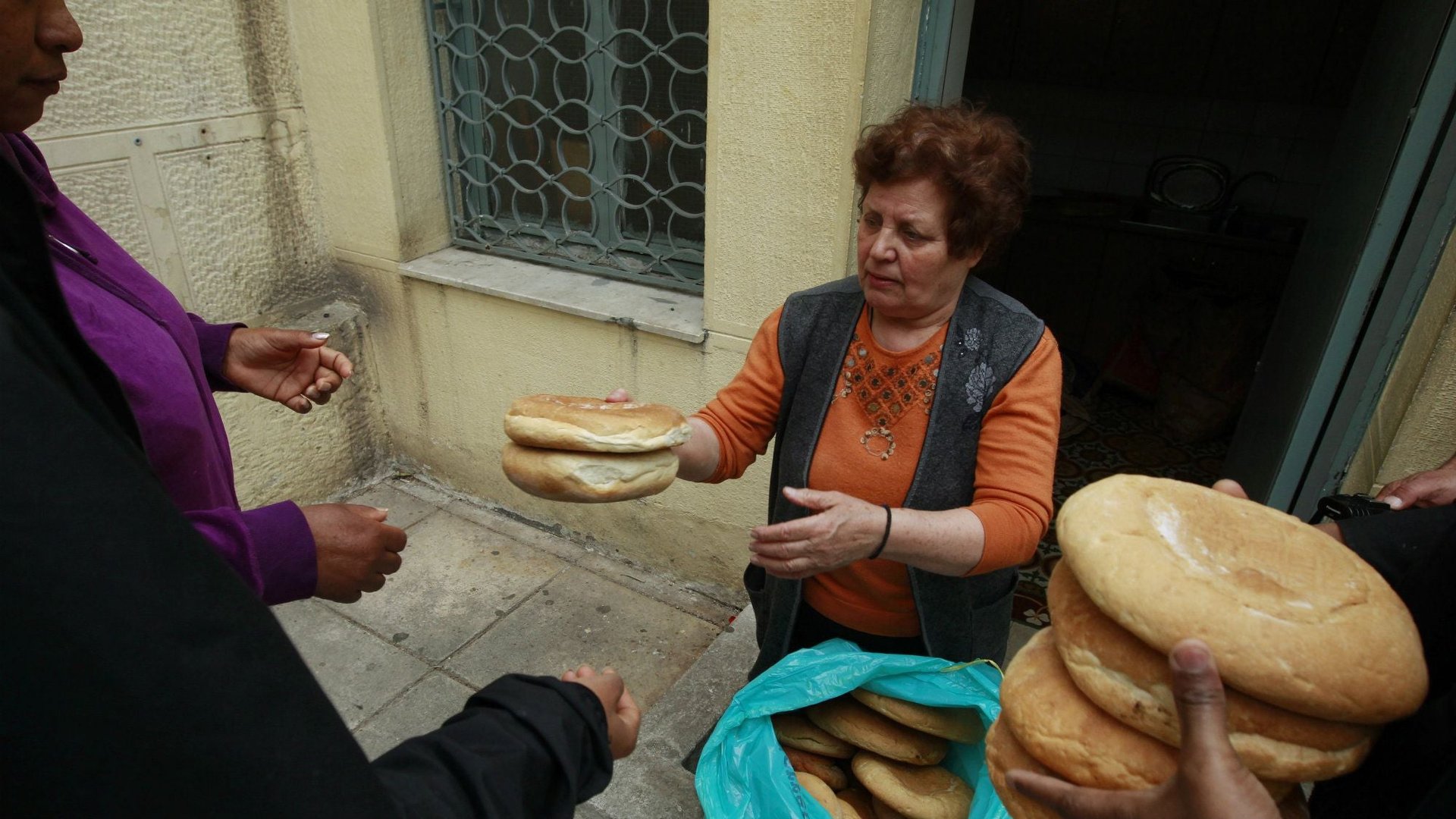Some of the weirder conditions of Greece’s bailout address milk labels, Sunday shopping, and the size of a bread roll
Throughout the high-stakes bailout negotiations between Greece and its creditors, the fate of the euro zone has hung in the balance. For months, Athens and its lenders have bickered bitterly over steep tax hikes, deep pension cuts, and cavernous black holes in bank balance sheets.


Throughout the high-stakes bailout negotiations between Greece and its creditors, the fate of the euro zone has hung in the balance. For months, Athens and its lenders have bickered bitterly over steep tax hikes, deep pension cuts, and cavernous black holes in bank balance sheets.
And bread rolls.
Every once in a while, Greece and its creditors let slip seemingly inconsequential details amidst far more profound proposals. For example, in an ill-fated, last-ditch effort to secure a new deal before the old one expired last month, Greece’s prime minister promised, among other things, to “liberalize the market for gyms.”
The conditions now demanded by creditors in their final offer for a nearly €90 billion ($100 billion) bailout include similar picayune requests for Athens to reform seemingly minor areas like “Sunday trade, sales periods, pharmacy ownership, milk and bakeries.”
These derive from a package of recommendations from the so-called “OECD toolkit.” In 2013, the OECD spent a year analyzing regulatory shortcomings in Greece, and came up with more than 320 recommendations to boost competition in a range of industries. The full report weighs in at nearly 400 pages (pdf)—below is a summary of just a few of the problem areas in the five subjects singled out for attention by Greece’s creditors. Behold, the nitty-gritty of a billion-euro bailout:
Bakeries
The problem: Breads can only be sold to consumers in a few specified weights, and the traditional bread roll (koulouri) is subject to an arbitrary minimum weight, 40 grams (1.4 ounces).
The solution: Abolish specified weights—instead label bread and baked goods with the price per kilogram.
Milk
The problem: Rules set the shelf-life of pasteurized milk at no more than five days, half of the limit in most other EU countries. This makes transporting or importing milk impossible—as a result, milk prices in Greece are 34% higher than the EU average.
The solution: Remove the five-day regulation and hold manufacturers responsible for setting the maximum shelf life, as elsewhere in the EU.
Pharmacies
The problem: As Quartz has covered before, pharmacies are one of the most coddled industries in Greece. One rule that bothers the OECD in particular is that pharmacies must be owned by licensed pharmacists.
The solution: Get rid of the ownership restrictions, opening up the sector to a wider pool of entrepreneurs and retail chains. Keep the dispensation of medicines restricted to pharmacists as supervisors.
Retail promotions
The problem: Shops are only allowed to offer seasonal promotions during four fixed periods in a year. In addition, the law forbids advertising these discounts for 30 days before the promotions.
The solution: Let retailers set the best dates for their sales, and remove restrictions on advertising them beforehand.
Sunday shopping
The problem: With a few hard-won exceptions, most shops aren’t allowed to open on Sundays.
The solution: Either allow stores in tourist areas to open on all Sundays (instead of a limited number) as a pilot project first, or just remove all restrictions and let all retail outlets open on Sundays anytime between 11am and 8pm.
Some have seized on these reforms to highlight the apparent hypocrisy of creditors—for example, restrictions on Sunday shopping in Germany are already stricter than in Greece, before the required reforms. The same goes for other creditor countries in other areas. But overall, Greece is far behind its peers when it comes to the ease of doing business.
For this reason, although many of the individual reforms may seem small and petty, they add up to a modernized, liberalized vision of a country that creditors are more comfortable lending to. And after Athens gets more urgent changes to taxes and pensions out of the way, it won’t be able to shirk on the small stuff: One of the toughest provisions in the bailout deal requires the government to consult with creditors on “all draft legislation in relevant areas” before it goes to parliament.
So it won’t be long before technocrats from the IMF, ECB, and European Commission are squinting at milk labels and squeezing bread loaves during periodic reviews of Greece’s progress on the program, with vital financial aid at stake.